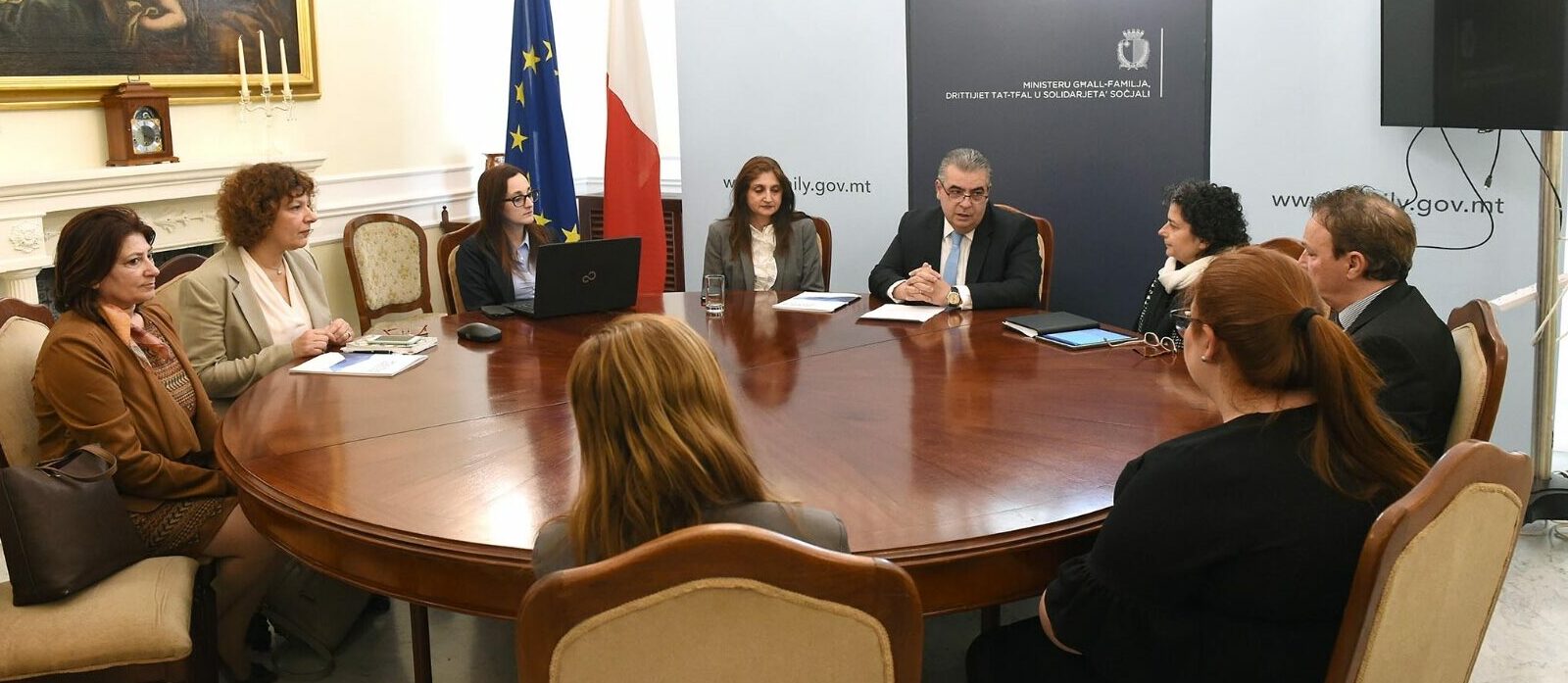Overview
The National Strategy on Positive Parenting necessitated the setting up of the Taskforce which would be responsible for its implementation
The Positive Parenting Taskforce was set on the 28th March 2018 following the identification of the members through inter-ministerial discussions, as per policy action 1 in the National Strategic Policy for Positive Parenting 2016-2024. It is led by the Ministry for Social Justice and Solidarity, the Family and Children’s Rights (MSFC), formerly titled Ministry for the Family, Children’s Rights and Social Solidarity (MFSS), in coordination with key representatives from other relevant Government Ministries. The aim of this taskforce is to oversee the implementation of this strategic policy. The taskforce holds monthly meetings. Other meetings are held with stakeholders by the chair and some of the members of the Taskforce.


Finally, adopting a positive parenting approach goes hand in hand with respecting and protecting children’s and adolescents’ rights and dignity. According to the UN Convention on the Rights on the Child, children and adolescents have the right to:
- privacy
- participation
- be given support and advice by parents and have regular contact with both parents
- the right to identity – name, nationality and family life
- not to be discriminated against; to express themselves and
have access to information and be empowered - have their own religion
- meet with people and peers
- be protected from harmful information
- be protected from all forms of abuse – physical, and emotional and neglect
- right to education and health services
What is Positive Parenting?
Positive Parenting focuses on building a connection and a healthy relationship with children while also providing children with boundaries, structure and natural consequences when needed.
Positive Parenting recognizes the importance of discipline and developing a sense of respect for authority. The emphasis is to stir away from any form of physical discipline or aggression, which are known to create a sense of unsafety, insecurity, and fear in children, which is not conducive to healthy development of self and relationships. Alternatively, children are more likely to develop a healthy sense of self and relationships when their parents focus on:
- listening and attuning
- building connection
- being firm but loving
- being consistent
- understanding the reason and function behind the children’s difficult behaviour
- highlighting the child’s strengths
- providing praise and catching children being good
- supporting children in their areas of growth
- modelling respect
- being empathic and containing of emotions
Contact Us
Do you have a question? Contact us now… we can help!
